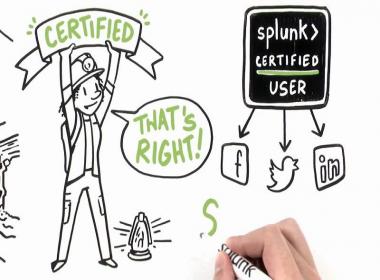
Back pain is a common ailment that can disrupt regular life and requires effective management strategies tailored to individual needs. Expert physiotherapists employ evidence-based techniques to alleviate discomfort, enhance mobility, and prevent recurrent issues. Physical therapy for back pain includes a blend of therapeutic exercises, manual therapy, and lifestyle modifications. Physiotherapy Edmonton aims to address the root causes of pain, promote long-term relief and improved spinal health, and ensure that patients regain functionality and quality of life without recurring discomfort.
How Everyday Habits Lead to Back Pain?
Slouching and Poor Posture Poor posture, like slouching while sitting or standing, misaligns the spine and strains muscles, causing tension and chronic back pain.
Sitting for Extended Periods Sitting for long periods without proper support compresses lower back discs, causing stiffness and pain.
Improper Lifting Techniques Incorrect lifting, like bending at the waist instead of using the legs, strains back muscles and can lead to injuries.
Wearing unsupportive Footwear, which lacks proper support, can misalign the body, strain the spine, and cause back pain.
Sleeping on an Unsupportive Mattress Mattresses that are too soft or too firm can result in spinal misalignment during sleep, causing stiffness and pain.
Stress and Muscle Tension Stress causes muscles to tighten, particularly around the back, neck, and shoulders, leading to pain and discomfort.
Repetitive Movements Daily activities involving repetitive movements can strain the back, increasing the risk of chronic pain.
Using Mobile Devices Poorly (Tech Neck) Excessive use of mobile devices can lead to "tech neck," where prolonged forward head posture strains the neck and upper back.
Role of Physical Therapy in Managing Daily Habits That Cause Back Pain
Physical therapy in Edmonton offers a natural, non-invasive solution to both managing and preventing back pain. Here's how physiotherapy clinics can effectively manage the daily habits leading to back pain:
Posture Correction
Educating patients on proper posture and providing strategies for maintaining alignment helps minimize the stress on the spine. Therapists might use techniques like manual therapy or taping to correct posture and reinforce optimal positioning.
Manual Therapy for Back Pain
Soft Tissue Mobilization: Releases muscle tension and improves circulation, reducing back pain from prolonged sitting.
Myofascial Release: Releases tension in the fascia surrounding the muscles, alleviating back pain from prolonged sitting or repetitive movements.
Trigger Point Therapy: Targets muscle knots that contribute to chronic back pain, especially from stress or overuse.
Common Taping Methods:
Kinesiology Tape: Supports muscles and improves posture, reducing back pain caused by slouching or long hours of sitting.
McConnell Taping: Provides rigid support to correct posture, minimizing back pain during activities that involve lifting or bending.
Pain Management Techniques
In Edmonton, physical therapy includes various pain management techniques such as modalities like heat or ice, as well as soft tissue massage. These interventions help alleviate pain and improve function.
TENS Therapy:
Helps manage both acute and chronic back pain, particularly for those suffering from muscle spasms or nerve-related discomfort.
Ultrasound Therapy:
It utilizes high-frequency sound waves to penetrate deep into muscle tissues, promoting healing and reducing inflammation. It is often used in physical therapy to treat back pain caused by muscle strain, soft tissue injuries, or inflammation.
Shockwave Therapy:
This non-invasive technique is highly effective for chronic back pain, especially when caused by muscle strain, tendonitis, or other soft tissue injuries resulting from poor movement patterns or lifting improperly.
Ergonomic Advice
Physical therapists offer crucial insights into ergonomic adjustments for workspaces and daily activities. This guidance helps reduce strain during activities like sitting at a desk or lifting heavy loads.
Desk Setup:
Ensure that your arms rest comfortably at your sides with your elbows at about 90 degrees when using the keyboard and mouse. This reduces the strain on your shoulders and upper back.
Seat Position:
Position the seat so that your knees are slightly bent and your back is completely supported. The seat should be reclined slightly (100–110 degrees) to keep the natural curve of your lower back and prevent back pain during long drives.
Strengthening and Flexibility Exercises
A core component of physical therapy involves strengthening the muscles that support the back and increasing flexibility. These exercises ensure that the spine is well-supported by its surrounding muscles, reducing the risk of pain due to weak or tight muscles.
Superman:
Lying face down, raise both arms and legs off the floor, holding for a few seconds. This exercise focuses on the lower back and glutes, improving spinal stability and helping to alleviate lower back pain caused by muscle weakness.
Piriformis Stretch:
The piriformis muscle, found in the gluteal region, can cause lower back pain if tight. Lying on your back, bring one knee toward the chest, then rotate it across the body. This stretch reduces tension in the hips and lower back, easing discomfort caused by tight muscles.
Stress Reduction and Relaxation Techniques
Therapists may teach relaxation techniques to help manage stress, which contributes to muscle tension and back pain. Techniques like deep breathing, mindfulness, or gentle stretching can be very beneficial.
Deep Breathing:
It promotes relaxation and reduces muscle tension. Inhale deeply through the nose, fill the belly with air, and exhale slowly. This helps relieve stress-induced back pain.
Guided Imagery:
Visualization techniques like guided imagery help relax the mind and body. Imagining peaceful scenes reduces stress and tension, providing relief from back pain.
Unlock Lasting Comfort:
Physical therapy in Edmonton offers a comprehensive and effective approach to managing back pain, whether it's caused by poor posture, muscle imbalances, or stress. In Step Physical Therapy not only alleviates pain but also helps prevent future discomfort. By strengthening the muscles that support the spine, improving flexibility, and reducing stress, individuals can improve their quality of life and maintain long-term back health. If back pain is affecting your daily life, finding a physiotherapist near me can be a crucial first step toward recovery and achieving lasting relief while also helping to maintain long-term spinal health.
Read More.. 21 Best Alternatives of Manga Stream to read manga Instantly Best Crazy Games For Childrens How to make selfies with dorian rossini What Happened to Konami The 13 best things to do in the ICELAND 6 Things to Know About Wrongful Death Suits How to increase your customer numbers How to Manipulate Online Slots Know Lab Made Loose Diamonds in Easy Steps 5 Best Winter Fashion Style Tips 5 Best Work From Home tips You should know The 5 Best Budget Friendly Hair Dryers 5 Best Fruit for Babies Diet Methods of Freight Rate Quotes Advantages of Road Freight Understanding Search Engine Optimization in the Competitive Marketplace Tips to Winning Big in Online Casino GPHR Certification Make Your Target Challenges Facing Shippers Transport Top 5 Methods for Online Slots 10 Daily Habits to Keep a House Clean and Tidy Calgary Window Reviews Lux Windows versus Jeld Wen Windows and Doors The Black 411 Announces Plans An Ultimate Guide for CompTIA SK0-005 Exam by Exams4sure List of Few Best Gaming APIs Like Escape from Tarkov, Fortnite API and More How to Get a Used ATV or UTV on the Economical Buying guide for Lighting Reasons Why Regular Website Maintenance Is Important Tips to make your Beauty Beds Last Longer 123Movies Watch Movies Free Online Where to birthday cake order in kohara Finding the Best Freight Shipping Quotes Top 10 Nursing Trends That Will Shape Healthcare Basic Safety Measures For Athletes’ Protection Repair Or Replacement What Does Your Tyre Need VoIP headsets Heads Free Head Set Zone Trending App Ideas for Beginners 8 Reasons to Maintain Up to Date Bookkeeping The best international high schools in Tokyo Japan On Site Rigging Services For The Transportation Industry 5 Ways to Improve Team Communication and Collaboration Why Should You Hire Professional Roofing Contractors in Daytona Beach How To Live A Balanced Lifestyle With Work In Canada Tips to enhance your IGTV Videos Best Furniture For Home in Dubai
Also read about:
Best Business Contract Lawyer in US
The Best Furniture Sales In Dubai
List of the most popular coffee tables for your home








